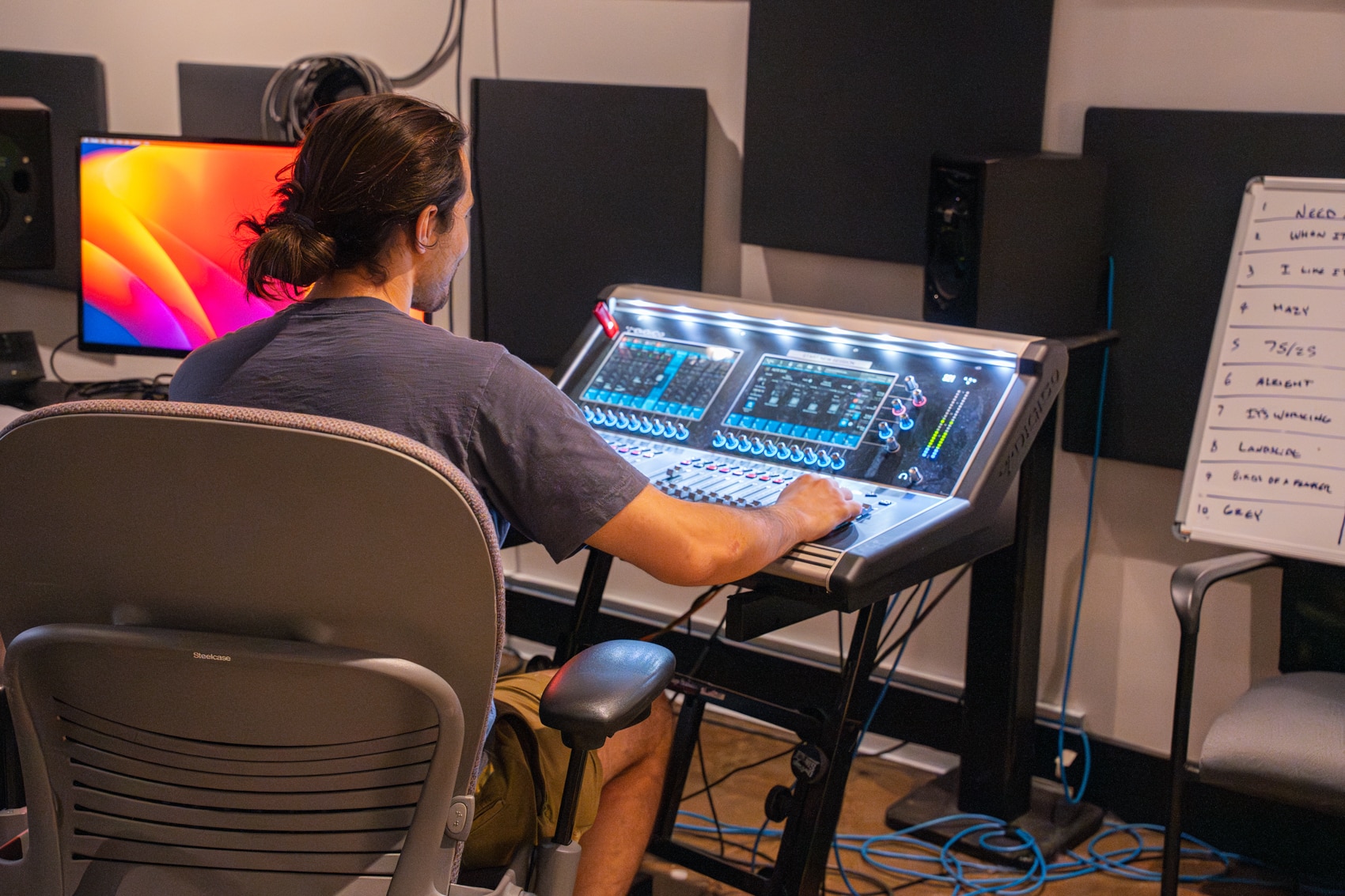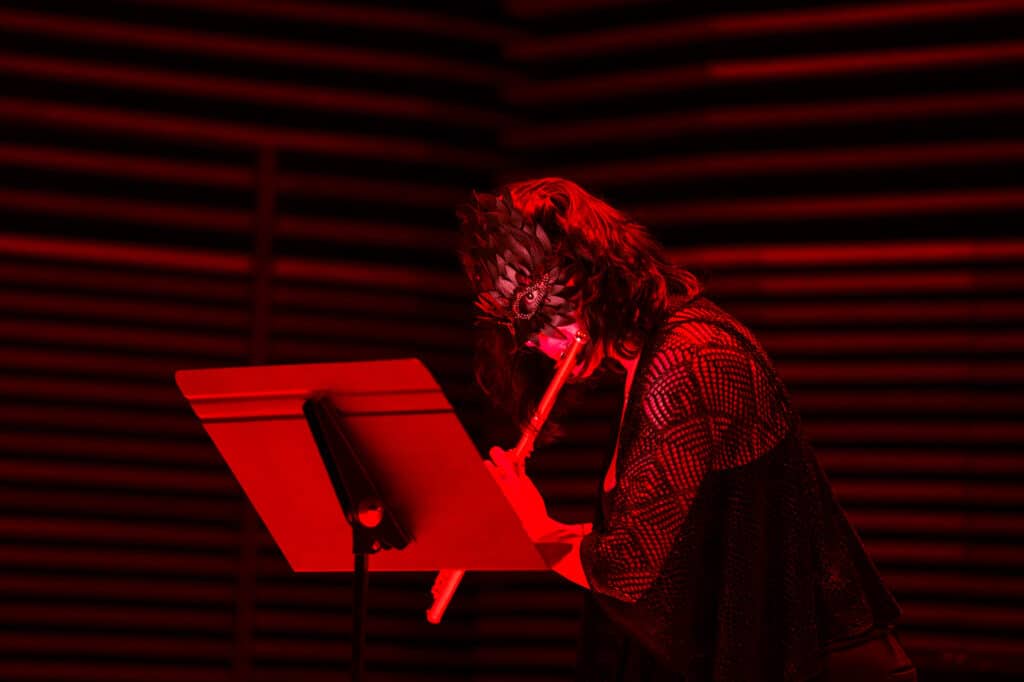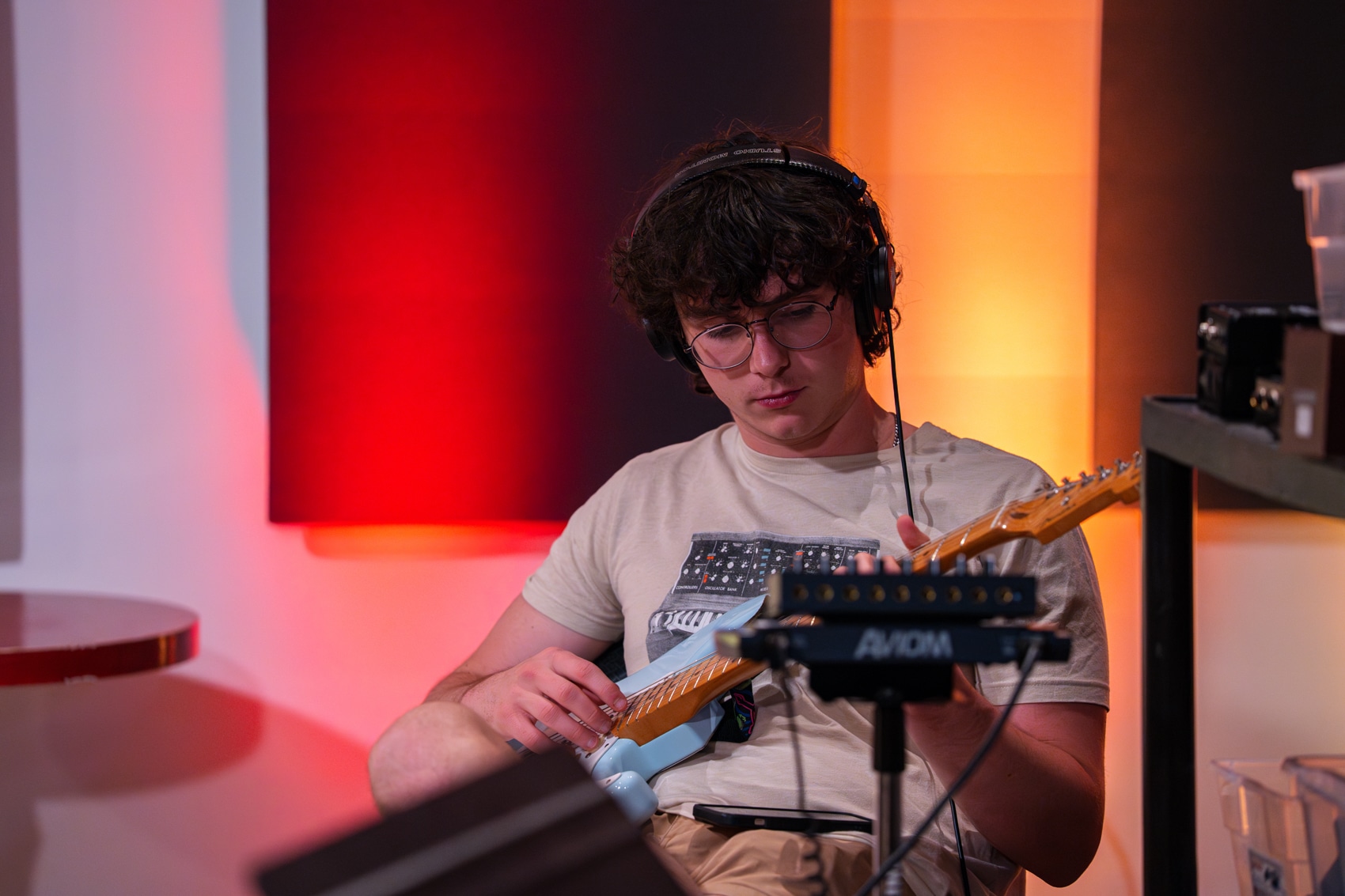Welcome to Music Composition, Theory & Technology at UT
The Composition, Theory & Technology Area at the University of Tennessee brings together musical creativity, scholarly inquiry, and hands-on technical skills. Whether you’re a composer, theorist, producer, or interdisciplinary thinker, this area provides the training, tools, and mentorship to help you develop your voice and shape your future in music.

Our Academic Programs
Students can pursue undergraduate and graduate study in the following areas:
Undergraduate Programs
Our undergraduate degrees in composition and theory provide a strong foundation in musical structure, creativity, and analysis.
Majors
Minors
We offer minors in Music Theory, Music Composition & Music Technology
Graduate Programs
Our MM programs in Composition and Music Theory offer advanced training in creative work, research, and teaching. Students deepen their technical expertise and gain experience presenting their work through performances, lectures, and academic writing.
Certificate Programs
Undergraduate and graduate students can enhance their degrees with certificate programs. These focused credentials provide specialized training. Click the links below to learn more about curriculum options.
Undergraduate
Graduate
Meet the Faculty
Nathan Fleshner
Associate Dean of Research & Facilities, Associate Professor of Music Theory
Andrew Sigler
Area Coordinator of Music Theory, Composition, and Technology; Associate Professor of Music Composition


UT Contemporary Music Festival
Held each spring, the UT Contemporary Music Festival celebrates new and experimental music through performances, workshops, and scholarly presentations. Students gain valuable experience by engaging with guest composers, performers, and scholars from around the world, expanding their understanding of contemporary music in both academic and creative contexts.
Interested in UT Music Composition, Theory & Technology?
Schedule a Music Major for a Day Experience or Building Tour!
Get a true sense of what it’s like to be a music major at UT! Sit in on classes, attend rehearsals, meet with the professors, and tour our beautiful facilities.
Learn How To Apply
Whether you’re applying as a first-time college student, transfer student, or graduate student, admission to the Natalie L. Haslam College of Music is a multi-step process that includes applying to the University of Tennessee and to our college. We’re here to guide you every step of the way.
Graduate Teaching Assistantships
The Natalie L. Haslam College of Music offers a number of graduate teaching assistantships each academic year.
Assistantships carry a waiver of the university tuition, pays for mandatory university fees, medical coverage, and carries a monthly stipend.
